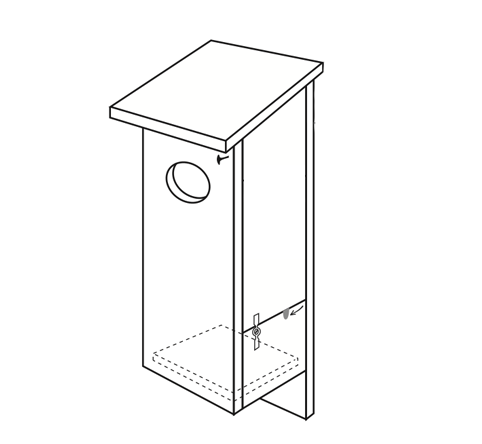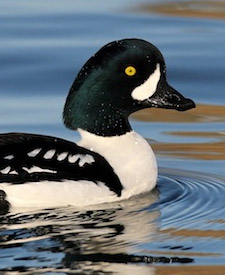Barrow’s Goldeneye
Barrow’s Goldeneye
Construction Difficulty
 moderate
moderate
Download Nest Structure Plan
 Download preview
Download preview
Nesting Habitat
Attach Nest Box To
Known Nesting Period
Not Nesting
Some Nesting Occurrence
Nesting in Most of Range
JAN
FEB
MAR
APR
MAY
JUN
JUL
AUG
SEP
OCT
NOV
DEC
Nest Box Placement
Height Range From Ground
6ft
16ft
Spacing Between Nest Boxes
Facing
Toward WaterNest Box Measurements
Entrance Hole Size
Nest Box Depth (inside)
Nest Box Width and Length
Helpful Tips
- Barrow's Goldeneye prefers small lakes with abundant invertebrates (i.e., fishless lakes) with shallow shores. Lakes bordered by forest or open rangeland are preferred.
- Mount nest boxes close to water, preferably over 16' high for best chance of attracting goldeneyes.
- Place several inches of wood shavings in the box in early spring.
- Females may desert their clutch if disturbed during the first two weeks of incubation. Observe nests carefully during this time.
- Boxes can be mounted over water to reduce the likelihood of predation. Boxes on land should be equipped with a predator guard.
- Regular nest checks and removal of European Starling nests can improve nest use and success.
- Brood parasitism can negatively affect nesting success. If egg-dumping becomes a problem, move nest boxes farther apart. (Typical clutch size for this species is 6–12 eggs; larger clutches are likely the result of egg-dumping.)






